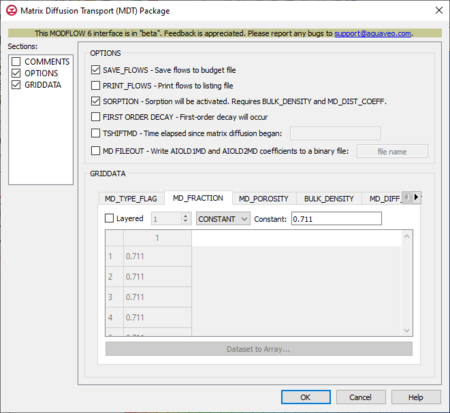GMS:MF6 MDT Package: Difference between revisions
From XMS Wiki
Jump to navigationJump to search
No edit summary |
|||
| Line 41: | Line 41: | ||
==Conversion from MODFLOW-USG Transport== | ==Conversion from MODFLOW-USG Transport== | ||
When converting a MODFLOW-USG Transport model to MODFLOW 6, use the following table when converting the MDT package: | When converting a MODFLOW-USG Transport model to MODFLOW 6, use the following table when converting the MDT package: | ||
{|- | {|- border="1" | ||
|- | |- | ||
|colspan="2"|''MODFLOW-USG Transport'' | |colspan="2"|''MODFLOW-USG Transport'' | ||
